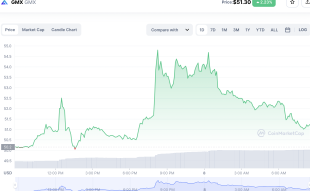Join Our Telegram channel to stay up to date on breaking news coverage
In the twenty-first century, blockchain is the only practical route to privacy and censorship resistance
Privacy and censorship resistance are not the same things, but they are closely related. When the government or another organization, like an advertiser, has complete access to your activities, they can punish you for misbehavior.
It might be time to move quickly to ensure that seismic cracks in Web2 aren’t repeated in Web3. This would be preferable to going backwards and trying to patch up Web2 flaws with duct tape. The so-called internet of the future might actually safeguard our private information and stop zealous or oppressive censorship by taking proactive measures before these problems get out of control.
Encryption is used to send the message
Suppressing open communication and free speech in nations battling for civil liberties and human rights makes it harder to overthrow repressive governments. Here, the blockchain technology’s transparency and encryption features can help to protect sensitive data. File-sharing platforms like the InterPlanetary File System and Web3-based email extensions like ShelterZoom’s Document GPS may be able to assist activists and citizens in hotspots for human rights in avoiding censorship and unauthorized surveillance.
When files are placed on a ledger, the sender has complete control over visibility and permissions and has access to a time-stamped record of all actions involving the file. Imagine it as Google Docs or DocuSign on steroids.
It’s simple to see how these blockchain-based tools are essential in a system with strict surveillance and censorship laws. Blockchain is also used in these kinds of solutions to address the censorship blind spots in cryptocurrency. Contrary to the widespread belief that cryptocurrencies are inherently private, transactions are stored on an open, transparent distributed ledger. Because of this, they can be tracked even more precisely than conventional financial transactions.
The truck convoy blockade in Canada, which accepted donations in Bitcoin, which could be easily tracked and sanctioned, learned this lesson the hard way. Crypto is much more transparent than traditional finance, according to Michael Gronager, CEO of the blockchain data company Chainalysis.
Crypto is far more transparent than traditional finance. […] We follow the funds
Why then is crypto known for being censorship-resistant? The decentralized ledger, which is very hard to take control of and makes transactions immutable once they are recorded, is part of the solution.
Tomi, a producer of Web3-based decentralized solutions and assisted-computing hardware, is one network working to provide total anonymity. With the help of 72 developers and eight anonymous senior crypto veterans, Tomi is creating TomiNet to enable the unrestricted exchange of information between journalists, activists, and generally law-abiding citizens. While the anonymity features of TomiNet are comparable to those of the dark web, the network is controlled by the Tomi community via a decentralized autonomous organization (DAO) to ward off undesirable or harmful activities.
The basic tenet of DAO governance is to keep corporations and governments out while still providing a means of combating violence.
Decentralization is more than just a theoretical necessity
The controversial right-wing social network Parler being banned from cloud-based web hosting services like Amazon Web Services is another noteworthy instance of gatekeeping in Big Tech. The cloud is hailed as a truly advantageous component of internet infrastructure. However, the problem is that only a small number of cloud providers offer essentially all necessary infrastructure, giving them the authority to serve as gatekeepers.
Whether or not you support Parler’s ban, the incident shows how a business can be effectively barred from using the internet because a cloud service wouldn’t work for them.
A critical fix might be provided by decentralized web hosting. Businesses like Akash and Flux provide a variety of cloud services that are essential in the internet age, but by utilizing decentralization, they limit the ability of the cloud service to exert control over users.
The instances of powerful governmental and private organizations stifling free speech and communication are increasing daily. The time has come for Web3 to step up, but this time with more vigor and clarity than before. Privacy and censorship resistance are mutually dependent; without the other, neither is meaningful. If the cryptocurrency industry is to live up to the lofty expectations placed on it, it must keep this in mind.
Today, maintaining privacy is practically impossible. Every person is vulnerable to unintentional exposure, from data theft incidents to governments tracking citizens. TikTok recently confirmed that staff, including those based in China, can access user data in an update to its privacy policy for the European Economic Area. As a result of the Iranian regime’s ongoing repression of protesters, the populace is afraid to criticize the government.
Nodes will depose tech oligarchies like Google and Apple
Marc Andreessen’s seminal 2011 essay, “Why Software Is Eating the World,” was well-regarded even at the time it was written and has since proven to be even more prescient than it seemed. Andreessen argued that every company was now ostensibly a software company, whether the company liked it or not, at the beginning of a decade in which software would prove invaluable to almost every aspect of modern life.
His ideas eventually applied to businesses that either hadn’t fully defined their markets or didn’t even exist yet but would go on to generate billions in market share, including Uber, Lyft, TikTok/ByteDance, Robinhood, and Coinbase, to name a few. He adapted his argument to many of the market leaders at the time. Software was probably going to be a crucial component of becoming a unicorn in the twenty-first century.
The emergence of true cloud computing and cloud giants, an industry in which Andreessen himself had been a pioneer at a time when many inside and outside computing were scoffing at the notion, was the covert force behind this complete disruption of modern economies and life.
But making so many aspects of life so simple came at a high price
They had stopped scoffing entirely by the second decade of the twenty-first century. Global spending on cloud computing increased by more than quintupling in the 2010s, going from $77 billion to $411 billion. The computer in our pockets relied on it to make everything available at the touch of a button.
As with anything else, the mobile-powered software revolution had trade-offs even though it made life as simple as pressing a button. Software has taken over the world, making very few, very large cloud hosting companies the dominant force. Currently, 65% of the market for cloud hosting is dominated by Amazon, Google, and Microsoft.
By using cloud hosting, this established a monopoly of sorts. For instance, hosts can remove services from clouds when using cloud hosting, as Amazon did with the infamous social media service Parler. The Apple App Store also prohibited Parler from using it.
Whether or not you concur with a service like Parler doesn’t matter when it comes to the bigger issue at hand. The incident proved that, in the post-software world, it only takes two corporations—Amazon and Apple—to completely shut down a service, effectively forcing it out of business.
What happens if a developer or service violates a less serious Amazon policy or term of service? The internet has been forced into a corner where it can no longer truly function as a marketplace for free ideas and development, especially if that development is in some way seen as a threat by businesses like Amazon and Microsoft.
A new world can be created by nodes
Newer blockchain protocols have the potential to “break” data in a world consumed by software and oligopolistic companies, allowing us to think about the exchange of that data in new ways, just as Bitcoin “broke” money and allowed people to think about the exchange of value in new ways.
Web3 and the initiatives it will spawn promise to fundamentally alter how information lives and is transmitted through the internet in a transparent and self-sufficient manner. Ecosystems that prioritize decentralization and the community promise to return control to programmers and, by extension, the users of their decentralized applications (DApps) and software. This will make it possible to create a common framework that supports best practices and economies of scale and can compete with the biggest centralized internet entities.
This is not to say that a decentralized utopia has already been attained. Ironically, despite the fact that decentralized systems are also ostensibly “trustless” systems, both users and developers still need to develop trust in these systems. Whatever the drawbacks of relying on corporations like Amazon, Google, Microsoft, and Apple, they have built up decades’ worth of that trust, credibility, and familiarity that makes it challenging for users and developers to adopt a completely different way of doing things.
Rewiring the incentive model that has supported the last several decades of the internet is a part of establishing that trust. In order for a new decentralized internet to function, users will need to invest in nodes, and developers will need to make the most of those nodes by creating software that is as easy to use on a phone as Uber or Wordle.
We can rebuild the world that was destroyed by software, one node at a time, if the decentralized Web3 community is successful in doing that.
Related
- Edward Snowden: Crypto is Heading in the Wrong Direction
- After the FTX crash, some urge for a return to bitcoin’s decentralized beginnings to safeguard financial assets
- How to invest in DeFi
Join Our Telegram channel to stay up to date on breaking news coverage


